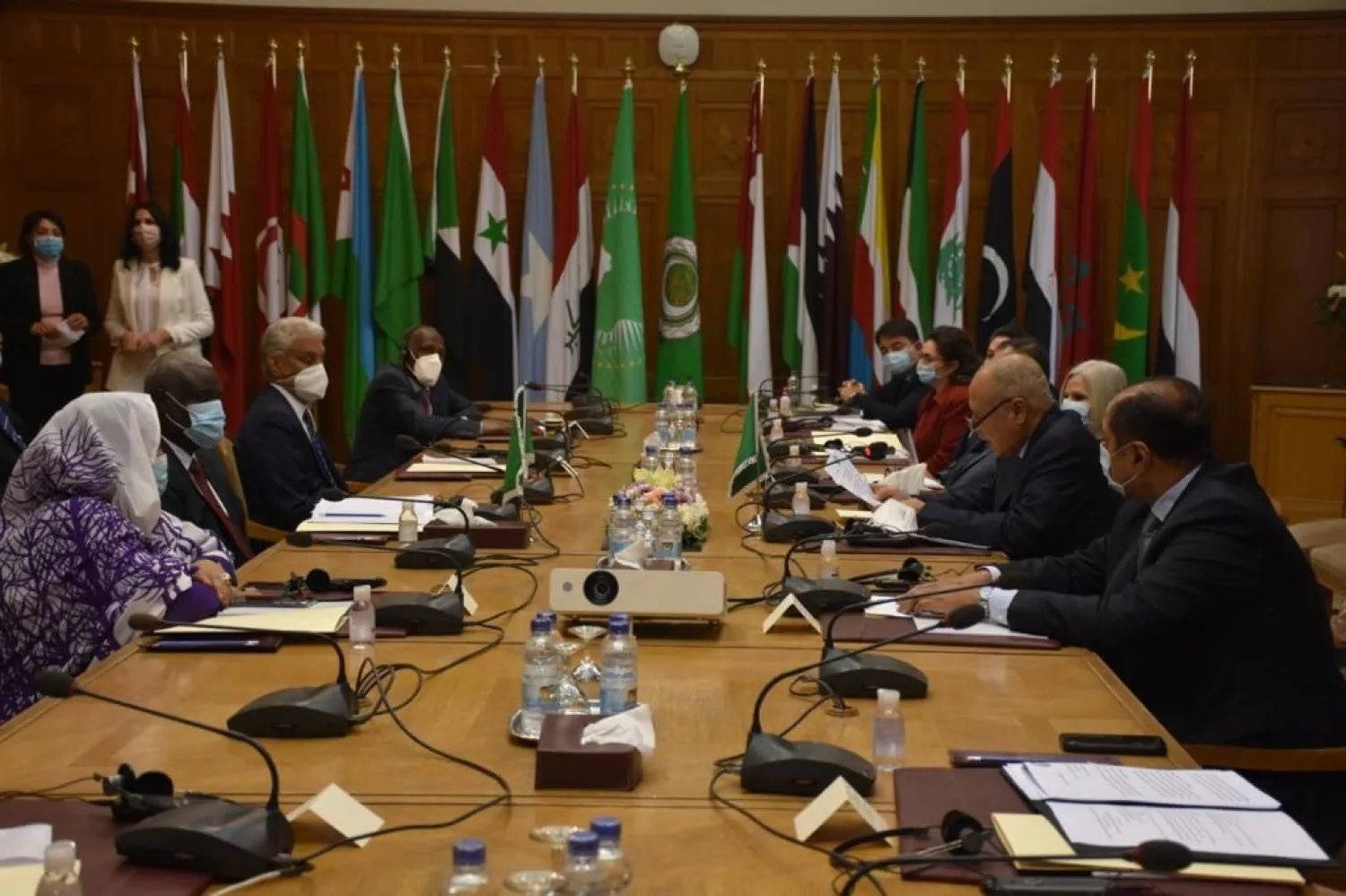Secretary-General of the Arab League Ahmed Aboul Gheit and Chairperson of the African Union Commission (AUC) Moussa Faki co-chaired on Monday the ninth meeting of the Arab-African Cooperation in the League’s headquarters in Cairo.
They followed up the implementation of the decisions issued by the 2016 Arab-African summit in Malabo, Equatorial Guinea, and the resulting joint action plans.
Monday’s meeting was held in preparations for the upcoming fifth Arab-African summit, which will be hosted by Saudi Arabia. Kings and heads of states and governments are expected to take part in the event.
“We highly appreciate the efforts exerted by the Arab League and the AUC to follow up on the implementation of the outcomes of the 2016 Arab-African summit, as well as the preparations for the next summit in Riyadh, despite the challenges imposed by the coronavirus pandemic,” Aboul Gheit said.
“We remain keen on moving forward with this joint work to overcome all obstacles,” he added. “We look forward to the continued coordination with the AUC and the next summit’s host country to agree on its proposed date and various preparations, hoping the conditions will us to resume the efforts exerted before the pandemic,” he added.
Aboul Gheit and Faki reviewed means to “enhance bilateral coordination and complementary work to resolve crises and address the multiple challenges in the Arab-African area.”
They also agreed to upgrade the level of bilateral partnership and develop existing work programs in various political, economic, social and cultural fields.
According to an Arab League official source, both officials discussed several methods to support Libyan parties to reach a political settlement and maintain the current ceasefire.
They further discussed means to support the political transition process in Sudan, consolidate the Juba Peace Agreement signed between the government and armed movements and support the state in its efforts to improve the economy, the official’s statement read.
The statement pointed out that Aboul Gheit and Faki tackled ways to intensify Arab-African support for the federal government in Somalia and assist it in its efforts to restore stability and security throughout its territories as it prepares to hold elections.
They also discussed other regional issues of common interest, including the border crisis between Sudan and Ethiopia and the African Union-sponsored talks between Egypt, Ethiopia and Sudan on the Grand Ethiopian Renaissance Dam (GERD).









